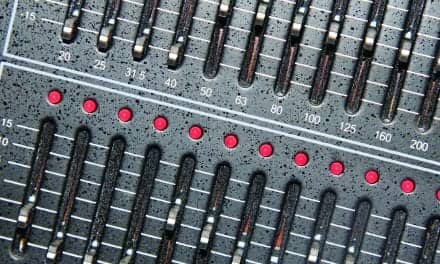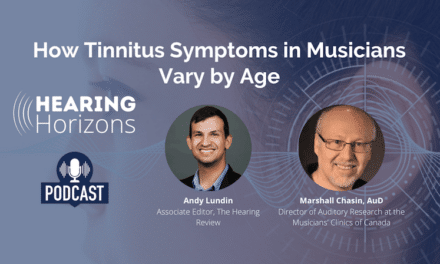Hearing loss may be associated with accelerated cognitive decline and cognitive impairment, according to a study of older adults published in the online-first edition of JAMA Internal Medicine (published online January 21, 2013).The prevalence of dementia is projected to double every 20 years because of the world’s aging population, so identifying the factors and understanding the pathways that lead to cognitive decline and dementia in older adults is a public health priority, the authors write in the study background.
Frank R. Lin, MD, PhD, of The Johns Hopkins Center on Aging and Health, Baltimore, studied 1,984 older adults (average age about 77 years) enrolled in a prospective observational study that began in 1997-1998.
|
|
|
Frank Lin, MD, PhD |
A total of 1,162 individuals with baseline hearing loss had annual rates of decline in test scores that measured global and executive function that were 41% and 32% greater, respectively, than those among individuals with normal hearing. Compared to those individuals with normal hearing, individuals with hearing loss at baseline had a 24% increased risk for incident cognitive impairment, according to the study results.
“Our results demonstrate that hearing loss is independently associated with accelerated cognitive decline and incident cognitive impairment in community-dwelling older adults,” the authors comment. “The magnitude of these associations is clinically significant, with individuals having hearing loss demonstrating a 30% to 40% accelerated rate of cognitive decline and a 24% increased risk for incident cognitive impairment during a 6-year period compared with individuals having normal hearing.”
The authors suggest that, on average, individuals with hearing loss would require 7.7 years to decline by five points on the 3MS (the Modified Mini-Mental State Examination, a commonly accepted level of change indicative of cognitive impairment) compared with 10.9 years in individuals with normal hearing.
“In conclusion, our results suggest that hearing loss is associated with accelerated cognitive decline and incident cognitive impairment in older adults. Further research is needed to investigate what the mechanistic basis of this observed association is and whether such pathways would be amendable to hearing rehabilitative interventions,” the study concludes.
In the September 2012 edition of The Hearing Review, Dr Lin wrote an article as part of a special “roundtable” discussion moderated by Douglas Beck, AuD, about hearing, cognition, and amplification. Click here to read Dr Lin’s article, “Hearing Loss and Dementia,” which is the second-to-last article in the feature package.
Note: An author made conflict of interest disclosures about being a consultant and an unpaid speaker. Study funding includes contracts from the National Institute on Aging and The Johns Hopkins Older Americans Independence Center, and grants from the National Institute of Nursing Research, the National Institute on Deafness and Other Communication Disorders, and a Triological Society/American College of Surgeons Clinician Scientist Award. Please see the article for additional information, including other authors, author contributions and affiliations, financial disclosures, funding and support, etc.
Source: EurekaAlert






